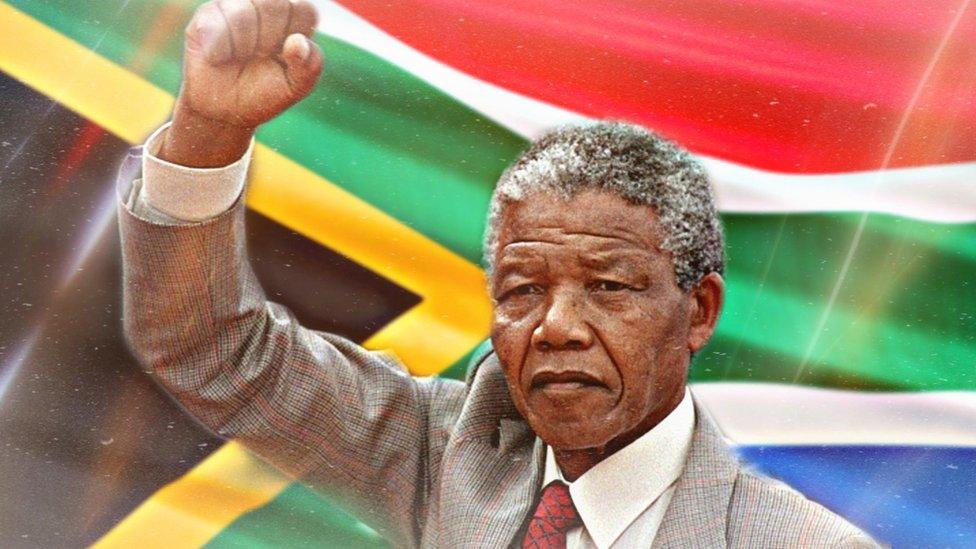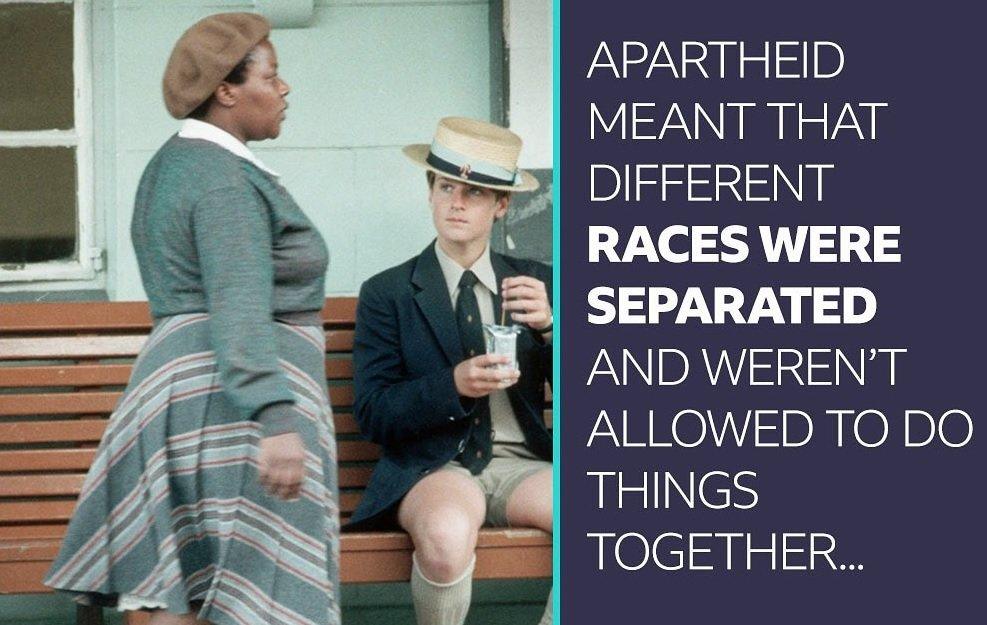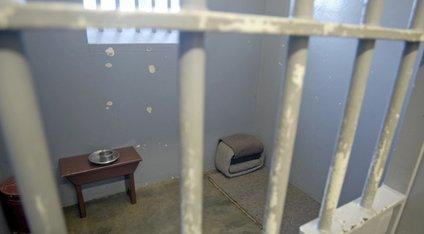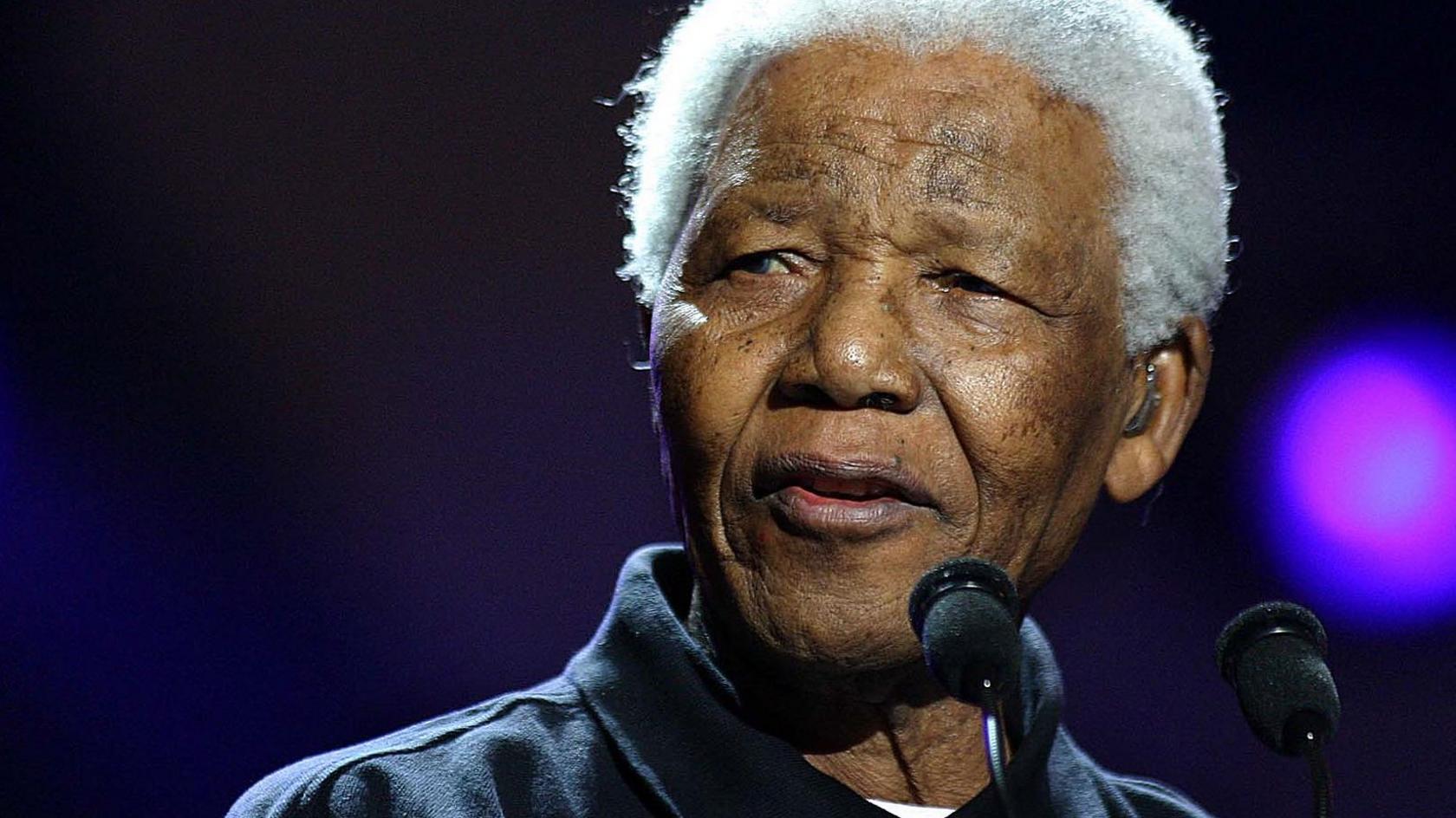Nelson Mandela Day: When is Nelson Mandela day and why it is important?
- Published

Tuesday 18 July is Nelson Mandela Day, recognising the South African leader's historic achievements on the anniversary of his birth.
Created in 2009 by the United Nations, the day is a celebration of Mandela's life and legacy.
The theme for Nelson Mandela Day for 2023 is: 'It's in your hands", and is aiming to raise awareness of how food is impacted by climate change and calling on people taking part to plant trees and food in their communities.
The organisers are also aiming to plant one million trees around the world.
Nelson Mandela was a famous world leader who had a huge impact on the 20th century and helped shape the 21st, working to bring about significant changes to the lives of many South Africans.
Continue reading to find out about Nelson Mandela's life story.
Why was Nelson Mandela important?
WATCH: A look back at Nelson Mandela's life (December 2013)
Nelson Mandela became the first black president of South Africa in the country's first democratic elections in 1994, but it wasn't an easy road to get there.
When Nelson Mandela was a young man, white and black people in South Africa were not allowed to do things together and had to live separate lives under a system called apartheid.
White people, who were a small proportion of the population, were in charge of everything in South Africa.

Apartheid in South Africa saw black people treated very differently with fewer rights than white people
Black people had fewer rights and couldn't vote and white people controlled which jobs black people could have, and even where they lived. They also had access to better schools and hospitals.
Nelson Mandela wanted South African apartheid to end and protested against it.
Mandela sent to prison

This was Mandela's prison cell, which is now a museum
During this time, some protests against apartheid in South Africa became violent and because of this critics of Mandela labelled him and his supporters as terrorists.
In 1964 Mandela was convicted of treason and trying to damage the government and was sentenced to life in prison, during which he spent time on Robben Island.
The island, off the coast of Cape Town in South Africa, was the site of a prison for 300 years. Most inmates, including Nelson Mandela, were black men imprisoned for political offences.
Despite this, many people around the world supported Nelson Mandela's cause and campaigned for his release.
Kids explain what Nelson Mandela means to them (2020)
Mandela released from prison
Finally in 1990, after being in prison for 27 years, the South African President FW de Klerk - a white man - allowed Mandela to go free, signalling a new era in the country.
Mandela had become a symbol of resistance against apartheid and his release saw celebrations not only in South Africa but across the world.
Remembering the day Nelson Mandela was released from prison (2020)
Apartheid in South Africa ended a year later in 1991, and three years after that, South Africa held its first fully-democratic elections in which black people, as well as white, were allowed to vote.
Nelson Mandela was elected president and set about trying to bring people of different races together.
In 1993, he was awarded the Nobel Peace Prize - the highest honour of its kind - for his work.
YouTuber Caspar Lee speaks to Newsround about South Africa, Rugby and Nelson Mandela
In 1995, South Africa held its first major sports competition - the Rugby World Cup.
Mandela gave his support to the South African rugby team, made up mostly of white men, so that it would unite the country. The team, known as the Springboks went on to lift the trophy.
Mandela has gone down in history as one of the most famous world leaders ever and is remembered by many for promoting a message of forgiveness and equality.
- Published18 July 2018

- Published13 December 2013

